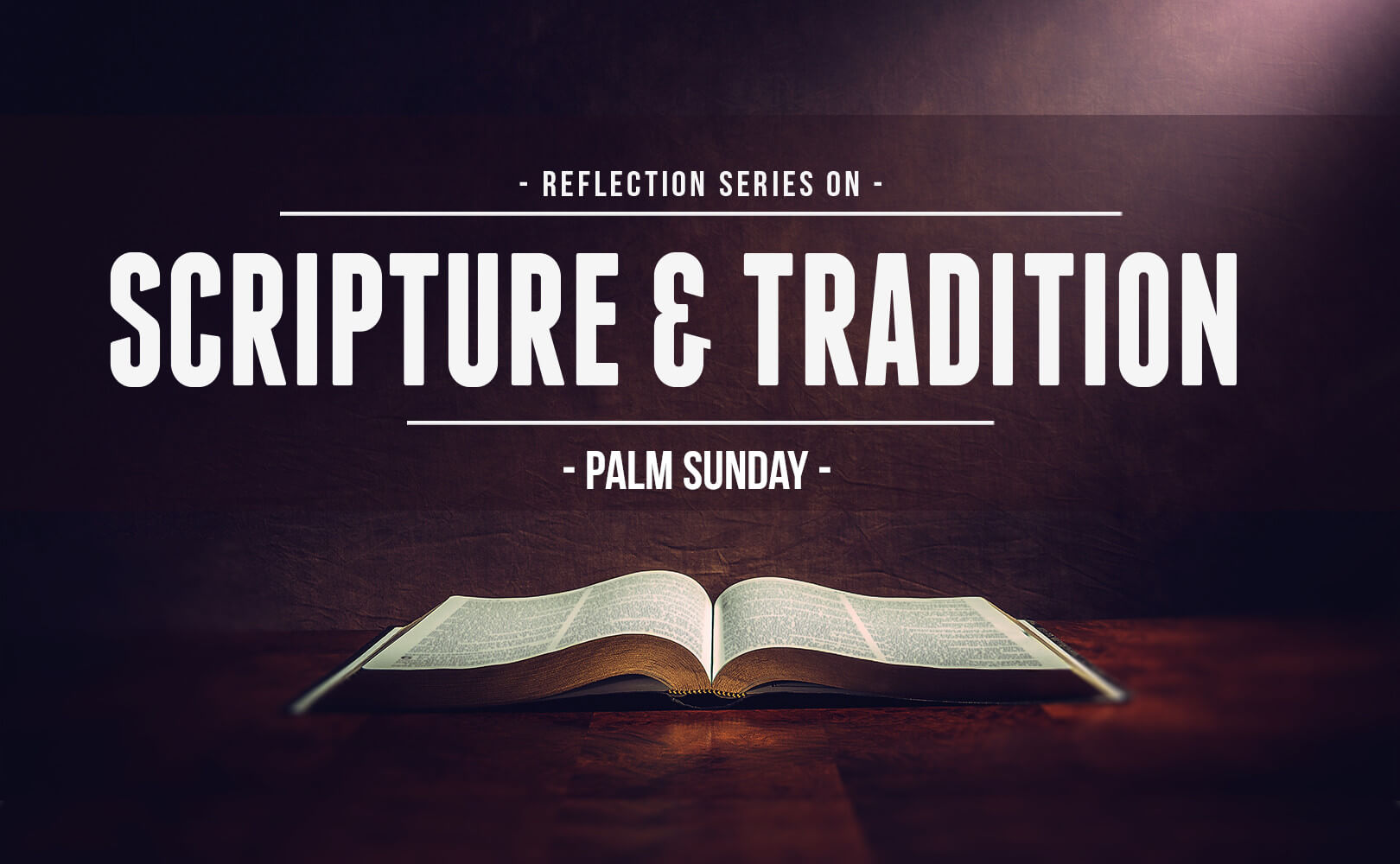Epistle: Philippians 2:5-11
Gospel: Matthew 26:36-75; 27:1-66
Almighty and everlasting God, by whose ordinance our Savior took flesh and suffered crucifixion to give mankind a pattern of humility, grant us this boon, that, with the lesson of His endurance before us, we may be found worthy to have fellowship in His resurrection.
– From the Collect for Palm Sunday
Palm Sunday marks the beginning of the most important week of the liturgical year: Holy Week. It is during Holy Week that the Church is called to meditate deeply on the mysteries of the Passion, Death, and Resurrection of Our Lord Jesus Christ. This is the week of our salvation.
For most Catholics, of course, Palm Sunday is also known for having the longest Sunday Gospel reading of the year. The impracticality of reading over 100 verses from the Bible during Mass is striking: what is so important that the Church makes us stand and listen to such a long passage? Nothing less than the reason we are at Mass, and what the Mass itself re-presents for us: the Sacrifice of Calvary. The climax of this long reading reveals its consequence:
Jesus again crying with a loud voice, yielded up the ghost. And behold the veil of the temple was rent in two from the top even to the bottom: and the earth quaked and the rocks were rent. And the graves were opened: and many bodies of the saints that had slept arose, and coming out of the tombs after his resurrection, came into the holy city and appeared to many. Now the centurion and they that were with him watching Jesus, having seen the earthquake and the things that were done, were sore afraid, saying: Indeed this was the Son of God. (Mt. 27:50-54)
Two things in particular stand out in this passage. First, St. Matthew tells us that Jesus “yielded up the ghost.” An early Church heresy called docetism claimed that God just appeared as man; He did not actually become man. Christ’s death, as presented by St. Matthew’s Gospel and the unanimous testimony of Scripture and Tradition, reveals the error of this heresy. God died. That sentence is folly to human wisdom, much like saying God has a mother, yet it is divine wisdom. We can say “God died” because we believe that the Second Person of the Trinity really became man, and that man Jesus Christ died on the Cross for our salvation. He did not simply appear as man, but he was man just like us in all things except sin.
A second point that stands out is the last sentence of that passage, the centurion saying, “Indeed this was the Son of God.” Note that this pagan does not say this at the Resurrection, but at the Death of Jesus. For, in one way, it is Christ’s death that is the more glorious work. Of course God has the power to rise from the dead, but who could contemplate that the Lord would come down from his heavenly throne to be stripped, scourged, crowned with thorns, painfully crucified, and die? Such an idea is unthinkable, but paradoxically it is in this moment that his divinity is fully revealed. For, as St. John tells us, “God is love” (1 John 4:8). Love gives of itself for the good of the other. It is in Christ’s complete self-gift on the Cross that the true nature of God is revealed to the whole world.
Sunday’s Epistle emphasizes this complete self-giving of the Cross. St. Paul writes, “Christ Jesus…emptied himself, taking the form of a servant, being made in the likeness of men, and in habit found as a man. He humbled himself, becoming obedient unto death, even to the death of the cross.” Christ gave all he had for our salvation, truly emptying himself. The Church Fathers deeply contemplated this mystery. St. Eusebius of Vercelli writes, “The Word was made flesh by bearing and doing what was beneath him in his indulgence and compassion toward us. All that he possessed by nature was emptied into this his person. Having been made obedient as a man in the true fashion of humanity, he has restored to our nature by his own humility and obedience what had perished through disobedience in Adam” (On the Trinity, 10(9).57).
How then are we to respond to this self-giving, this self-emptying, of Christ? We are called to empty ourselves in service to God and to our fellow man. Only by doing so can we truly be called “Christian,” a “little Christ.”


